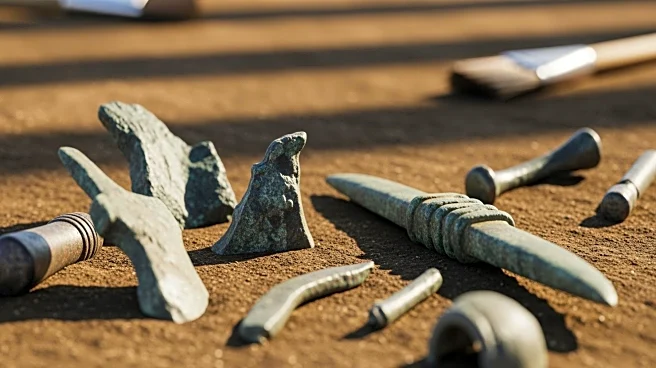What's Happening?
An ancient city known as Semiyarka, or the 'City of Seven Ravines,' has been discovered in central Asia, offering new insights into the region's industrial past. Researchers from the United Kingdom's Durham University and University College London, along
with Kazakhstan's Toraighyrov University, have detailed the findings in a new report. Semiyarka, located on the Kazakh Steppe, spans 350 acres and dates back to around 1600 B.C.E. during the Bronze Age. The city is notable for its bronze-producing capabilities, challenging previous assumptions about the societies in the area at the time. The discovery suggests that mobile communities could establish permanent settlements centered around large-scale industries, marking a significant shift in understanding the social and technological organization of steppe societies.
Why It's Important?
The discovery of Semiyarka is significant as it reshapes the understanding of early steppe societies, which were previously thought to be primarily nomadic. The evidence of a well-organized metal economy indicates that these communities were more advanced than previously believed, with the capability to sustain permanent settlements and engage in large-scale production. This challenges existing historical narratives and provides a new perspective on the development of trade and industry in ancient times. The findings could influence future archaeological research and theories about the evolution of societies in the region, highlighting the importance of industrial centers in the development of complex social structures.















